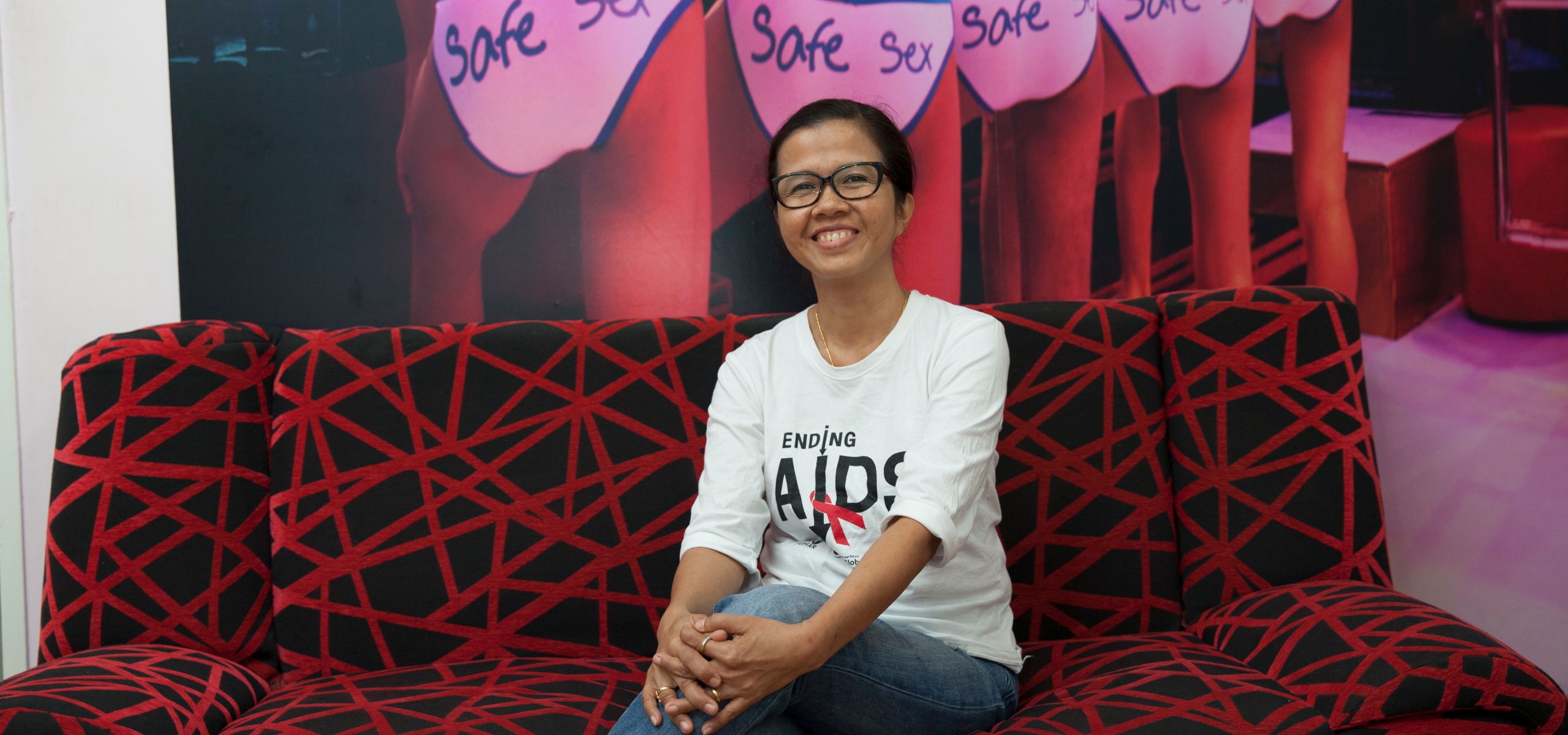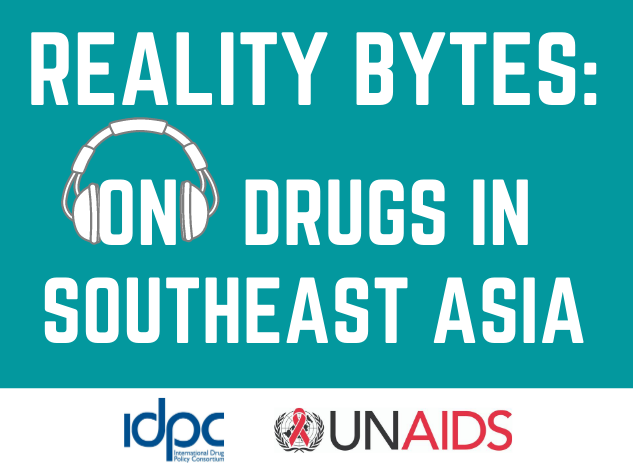Sex workers in Thailand provide health services and empower their community

“I fell into sex work,” said “Soi” Phathranis Meekrua. “I was a hair stylist and many of my clients were sex workers. One day they invited me to come along and visit them in the street. I was approached by a customer and thought why not have sex.”

“Soi” Phathranis Meekrua is an HIV peer counselor at SWING.
“Soi” is a transgender woman who grew up in a rural community in the northern Thai province of Lampang. When she was 15 years old, she moved to Bangkok to study make-up and hair styling.
“I found sex work was a good way to supplement my daytime income as a hair stylist,” she added. “Now, I am able to send money home to my family regularly and help them out.”
“Soi” understands that her peers sometimes find that health facilities aren’t set up to meet their needs. Sex workers work mostly in the evening and night and can find hospital hours challenging. They also sometimes avoid health facilities because they view staff as unfriendly and not supportive of their lifestyle.
“Soi” is trying to increase options for her peers. She is an HIV counsellor with the Service Workers in Group (SWING) Foundation which provides services to sex workers in Bangkok and Pattaya. While she has been a counselor for two years, last June she acquired a new skill.
“I took a week-long training and then passed an exam that qualified me to provide rapid finger prick HIV tests,” said “Soi”. “I was extremely nervous that I would fail and so when I passed the exam I felt immensely proud.”
In Thailand, health regulations require trained nurses and laboratory technicians to carry out all blood testing work. However, after intensive advocacy with national health authorities, the Thai Red Cross AIDS Research Centre with support from the United States Agency for International Development’s Health Research Program and RTI International started to pilot the training of community groups in providing finger prick HIV testing. With these tests, a small blood sample is obtained through a finger prick. Results are available after about 20 minutes.

HIV finger prick testing at the Service Workers In Group (SWING) Foundation.
“We have had this dream of being able to do our own HIV testing for a long time,” said “Rang” Surang Janyam, Director of the SWING Foundation. “While we were the first community-based organization in Thailand to provide HIV testing in 2011, SWING always had to rely on qualified lab technicians. This meant we could only provide the services two times a week. Now, we can offer them five days a week and we often go out and conduct tests where sex workers gather for work or relaxation.”
“Rang” points to the benefits that have emerged after eight of her staff qualified to provide finger prick tests last year. While sex workers are at higher risk of HIV, many are unaware of their status. With their new skills, SWING has been able to double the number of HIV tests it conducts to 200 a month. “It is now easier for us to follow up on the tests and link people who test positive with HIV treatment,” said “Rang.”
UNAIDS promotes community-based testing as critical to effectively preventing and treating HIV.
“Only by expanding the venues where sex workers and other key populations can access HIV testing can we ensure that 90 percent of people living with HIV know their status,” said Steve Kraus, Director of the Regional Support Team for Asia and the Pacific. “We need to scale-up community-based testing and reach out to sex workers.”
“My staff feels very proud of what we have achieved. We are showing that even though we are sex workers we can be health providers. We can support our community,” said “Rang.”
Recently, SWING has started to expand its services beyond its peers to other populations at higher risk of HIV. It provided voluntary HIV counselling and testing to migrants working in a factory and are partnering with the Bangkok Metropolitan Authority (BMA) to conduct on-site HIV tests.
“The BMA knows we are sex workers but they are still employing us because they trust the quality of our services. This is helping to decrease the stigma and discrimination surrounding sex work.” said “Rang.”
For “Soi” becoming an HIV counselor has helped increase her self-esteem. “It’s a good experience. I love being able to help my friends. My family is also very proud of my new skills.”
With this successful pilot, SWING and its partners are looking to scale-up community-based testing and reaching out to many more sex workers and empowering them to stand up for their rights.
 UNAIDS Asia-Pacific
UNAIDS Asia-Pacific 


